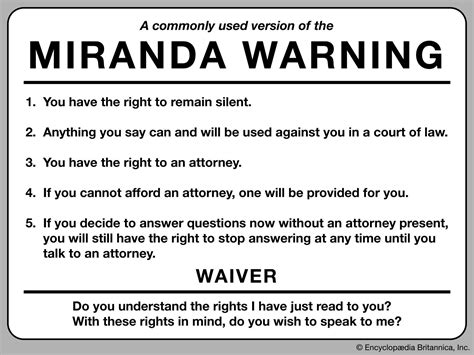It’s a thought none of us ever truly want to entertain: finding ourselves in a stressful interaction with law enforcement. Yet, in those moments, knowing your fundamental rights isn't just a legal nicety—it's your most powerful protection. I’ve seen firsthand how a calm, informed response, backed by a clear understanding of your constitutional rights, can make all the difference when emotions run high. That's why having a printable Miranda Rights card isn't about expecting trouble; it’s about smart, proactive self-advocacy. This guide is designed to empower you with the knowledge and the tools to navigate such situations with confidence.
### Table of Contents
- Understanding Your Miranda Rights: The Core Principles
- Why a Printable Card is Your Best Friend in a Pinch
- How to Effectively Use Your Miranda Rights Card
- Beyond the Basics: What "Silence" and "Counsel" Really Mean
- Common Misconceptions: Debunking Miranda Myths
- Keeping Your Card Handy: Practical Tips for Preparedness
- What Happens Next: Post-Invocation Guidance
- Tips for Using Your Miranda Rights Card Effectively
- Common Pitfalls: Mistakes to AVOID Regarding Your Rights
---
Understanding Your Miranda Rights: The Core Principles

Before we dive into the practicalities of a printable Miranda Rights card, let's solidify the foundation. Miranda Rights originate from the landmark 1966 Supreme Court case *Miranda v. Arizona*. They protect your Fifth Amendment right against self-incrimination and your Sixth Amendment right to counsel. These rights must be read to you *before* any custodial interrogation by law enforcement.
Here's a breakdown of what they fundamentally mean:
- You have the right to remain silent. This means you don't have to answer any questions, and anything you say can and will be used against you in a court of law. It's not just a suggestion; it's a constitutional safeguard.
- Anything you say can and will be used against you in a court of law. This isn't a scare tactic; it’s a direct warning. Even seemingly innocuous statements can be misinterpreted or used to build a case against you.
- You have the right to an attorney. If you cannot afford one, one will be provided for you prior to any questioning. This ensures everyone, regardless of financial status, has access to legal representation.
- You have the right to have an attorney present during any questioning. Your lawyer is there to protect your rights and advise you.
- You can decide at any time to exercise these rights and not answer any questions or make any statements. You can invoke your rights at any point during an interrogation, even if you started speaking.
Why a Printable Card is Your Best Friend in a Pinch

In a high-stress situation, your mind might race. You might forget the exact wording, feel intimidated, or simply struggle to articulate your rights clearly. This is precisely where a printable Miranda Rights card becomes invaluable. It's a tangible, concise reminder and a clear method to invoke your rights without fumbling for words.
Imagine a scenario where you're feeling overwhelmed. Having a card you can calmly pull out and read aloud, or simply hand to an officer, removes the pressure of needing to remember the precise legal phrasing. It acts as a script, ensuring you don't accidentally waive your rights through confusion or fear. For instance, I've heard countless stories from legal professionals where individuals, intending to invoke their rights, instead said something ambiguous that later hurt their case. A card eliminates that ambiguity.
How to Effectively Use Your Miranda Rights Card
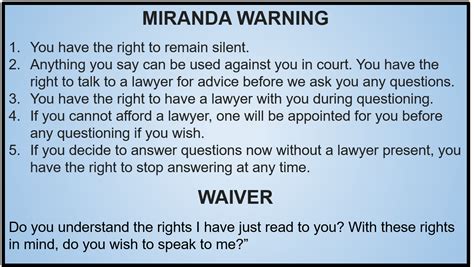
Simply having a printable Miranda Rights card isn't enough; you need to know *how* to use it effectively.
- Stay Calm and Clear: If you are being questioned or detained, remain calm. Do not argue or resist.
- Identify Yourself (If Required): You may be legally required to provide your name and identification in some situations, but generally, you are not required to answer further questions without invoking your rights.
- State Your Intention Clearly: Politely but firmly state, "I am invoking my right to remain silent. I wish to speak with an attorney."
- Present Your Card: If you have a printable Miranda Rights card, you can present it to the officer. The card should clearly state your invocation of rights and your request for counsel.
- Do Not Answer Questions: Once you invoke your rights, do not answer *any* further questions, regardless of how innocent they seem. This includes seemingly casual conversation.
- Do Not Consent to Searches: Law enforcement may ask to search you, your vehicle, or your property. You have the right to refuse a search unless they have a warrant or probable cause.
Beyond the Basics: What "Silence" and "Counsel" Really Mean

The "right to remain silent" and the "right to an attorney" are foundational, but their practical application goes deeper.
- The Power of True Silence: Remaining silent means not just refusing to answer direct questions, but also avoiding casual conversation, small talk, or any remarks that could be construed as communication. This includes gestures or head nods. The goal is to avoid inadvertently providing information that could be used against you.
- Asserting Your Right to Counsel: Simply saying "I think I want a lawyer" might not be enough. You must clearly and unequivocally state, "I want an attorney." Once you do, all questioning must cease until your attorney is present. Do not let officers try to persuade you otherwise. This is a critical legal procedure.
- Custodial Interrogation: Miranda warnings are required only when you are in *custody* (meaning you are not free to leave) and being *interrogated* (meaning police are asking questions designed to elicit incriminating information). If you're not in custody, or if they're not interrogating you, they don't have to read your rights, but your right to remain silent still applies.
Common Misconceptions: Debunking Miranda Myths

There are many myths floating around about Miranda Rights, often fueled by dramatic TV shows. Knowing the truth is key to truly leveraging your printable Miranda Rights card.
- Myth 1: If they don't read me my rights, I automatically go free. False. If Miranda warnings aren't read, any statements you make *after* being taken into custody and *before* the warnings are read may be inadmissible in court. However, the charges against you still stand, and other evidence can still be used.
- Myth 2: I can talk to the police if I'm innocent. This is a common and dangerous misconception. Even if you are innocent, your words can be misunderstood, taken out of context, or lead to further investigation that uncovers unrelated issues. Police are trained to gather evidence, not necessarily to help you prove your innocence.
- Myth 3: Invoking my rights makes me look guilty. This is a common tactic used by police to encourage people to talk. Asserting your constitutional rights is *never* an admission of guilt. It's a prudent legal decision. As someone deeply invested in civic education, I can tell you that using your printable Miranda Rights card is a sign of being informed, not guilty.
- Myth 4: I only need a lawyer if I'm charged. You have the right to an attorney *before* any questioning begins, even if you haven't been formally charged yet. This early legal counsel can be crucial in protecting your interests.
Keeping Your Card Handy: Practical Tips for Preparedness

A printable Miranda Rights card is only effective if you have it when you need it.
- Wallet or Purse: Keep it easily accessible in your wallet or purse, perhaps behind your driver's license. This is my personal preference; it's discreet yet readily available.
- Vehicle Glove Compartment: If you're frequently in your car, a copy in the glove compartment (perhaps with your registration and insurance) can be a good idea.
- Laminated for Durability: Print your card on sturdy paper and consider laminating it to protect it from wear and tear.
- Digital Copy (Backup): While a physical card is best for immediate presentation, having a clear image of it on your phone as a backup can also be helpful.
What Happens Next: Post-Invocation Guidance
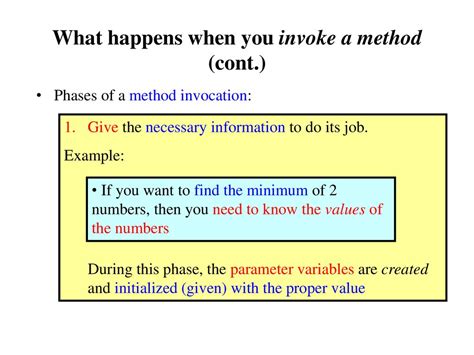
Once you've invoked your rights using your printable Miranda Rights card and stated your desire for an attorney, what should you expect?
- Questioning Must Stop: Officers are legally obligated to cease all questioning. They may try to engage you in small talk or ask follow-up questions, but you should continue to remain silent.
- Booking Process: You will likely be taken to the station for booking, which involves fingerprinting, mugshots, and collecting personal information. You can usually answer factual questions for booking (like your name, address, etc.) without waiving your rights, but it's best to confirm with your attorney once they arrive.
- Contacting an Attorney: The police are not obligated to dial the number for you, but they must provide you with a reasonable opportunity to contact one. If you can't afford one, they must facilitate the process for a public defender.
- Do Not Volunteer Information: Even after booking, do not volunteer any information to anyone—other inmates, officers, or staff—until you have spoken with your attorney. Anything you say can still be used against you.
---
Tips for Using Your Miranda Rights Card Effectively
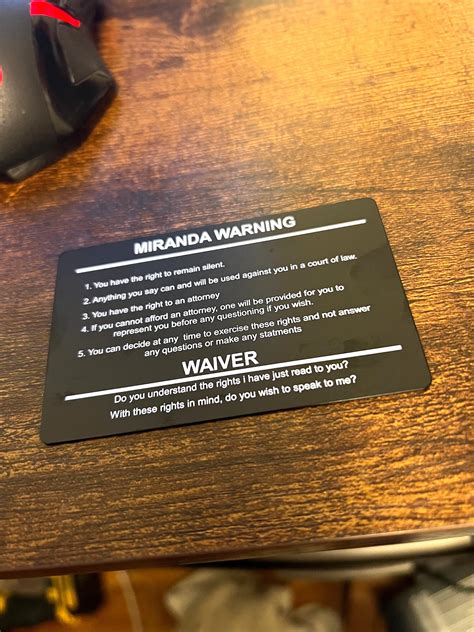
Making the most of your printable Miranda Rights card involves a few key considerations:
- Practice the Delivery (Mentally): While you hope to never need it, mentally rehearsing how you would calmly and clearly present the card and state your intention can build confidence.
- Be Unequivocal: The key to invoking your rights is to be absolutely clear. Avoid "maybe" or "I think." Your printable Miranda Rights card helps you do this by providing the exact wording.
- Understand Its Limits: A card is a tool for invoking rights during *custodial interrogation*. It doesn't prevent an arrest, nor does it mean you don't have to identify yourself (in situations where that's required). It's a shield against self-incrimination, not a get-out-of-jail-free card. I personally find that understanding these boundaries provides genuine peace of mind, allowing the card to serve its true purpose without unrealistic expectations.
Common Pitfalls: Mistakes to AVOID Regarding Your Rights
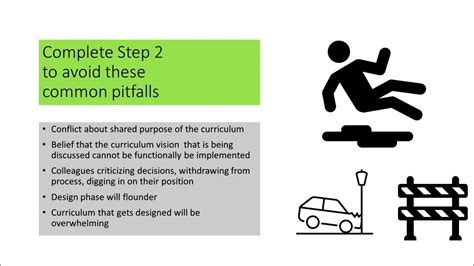
Even with a printable Miranda Rights card in hand, certain mistakes can inadvertently undermine your protections.
- Don't Assume They Know: Don't assume officers know you're invoking your rights just because you're silent or appear distressed. You must clearly state your intention, verbally or by presenting your card. Don't be like those who assume their silence alone is enough; it often isn't seen as a clear invocation.
- Avoid "Just Explaining": The biggest pitfall is thinking you can "just explain" your way out of a situation. Any explanation, no matter how innocent, can be twisted or used against you. Your right to remain silent means just that.
- Don't Fall for Tricks: Officers may use various tactics to get you to talk, such as saying, "We just want to hear your side of the story," or "It will be worse if you don't cooperate." These are designed to bypass your rights. Remain firm in your decision to remain silent and await counsel.
- Never Resist or Obstruct: While you have rights regarding speech and counsel, you do not have the right to physically resist arrest or obstruct an officer. Do not escalate the situation physically.
---
Now, you have the knowledge and the practical tool—your printable Miranda Rights card—to stand firm in your rights. This isn't about fostering mistrust, but about empowering yourself with vital legal awareness. Prepare yourself, understand the stakes, and carry the peace of mind that comes with knowing you’re ready, should the need ever arise. Go forth, stay informed, and protect your peace!
